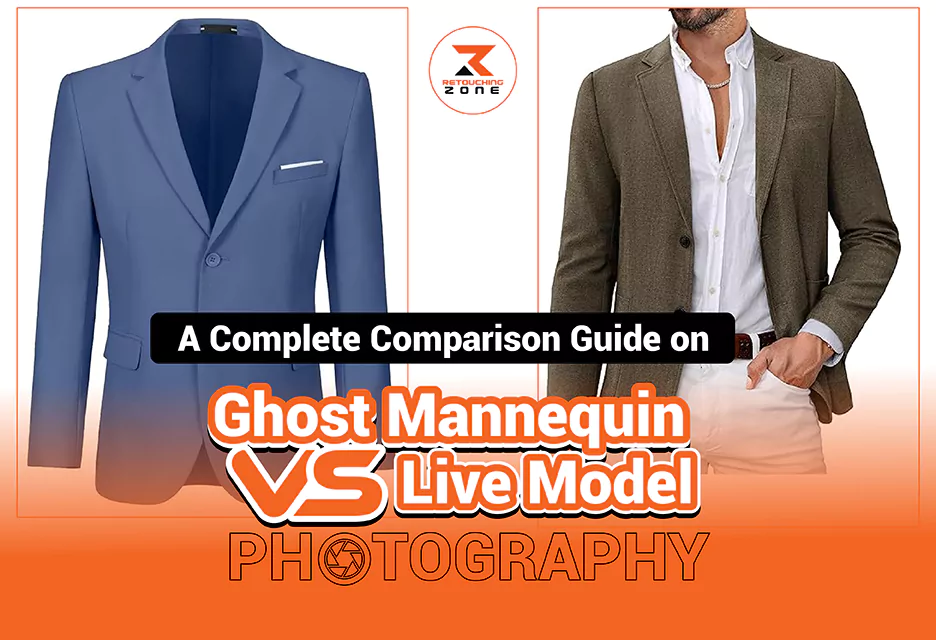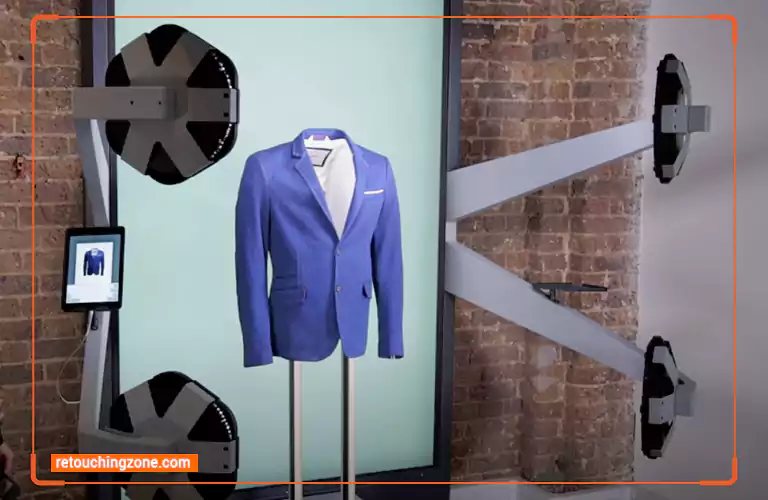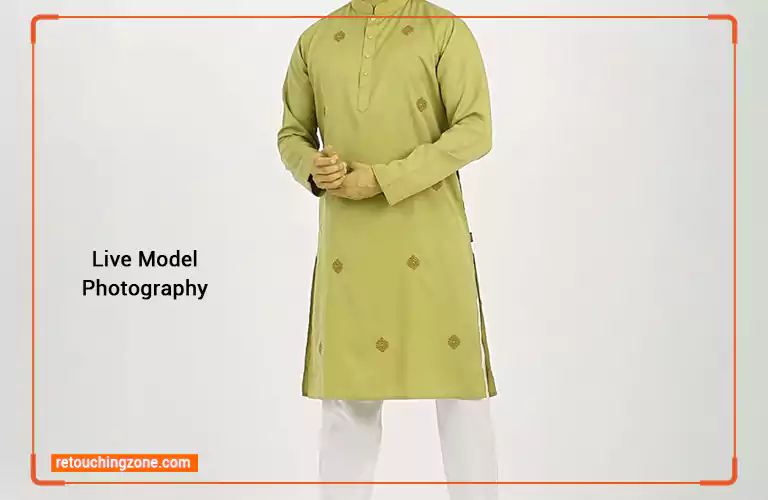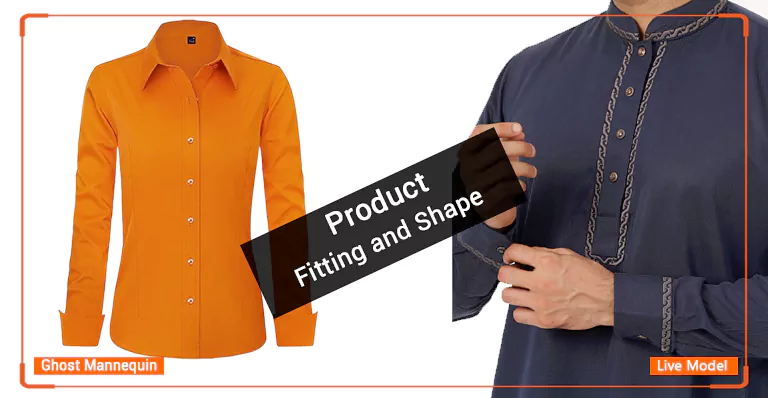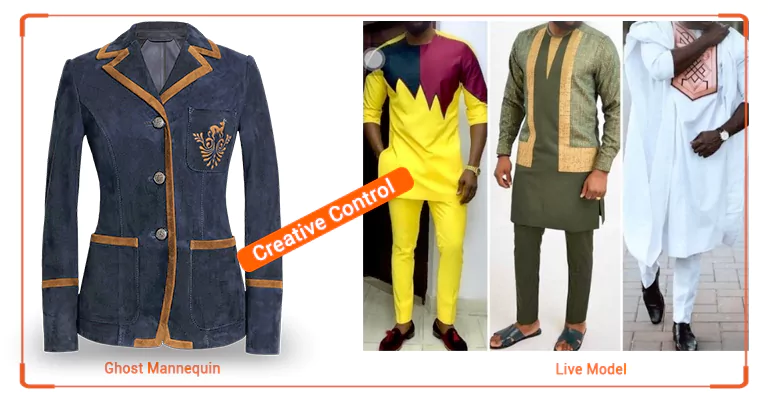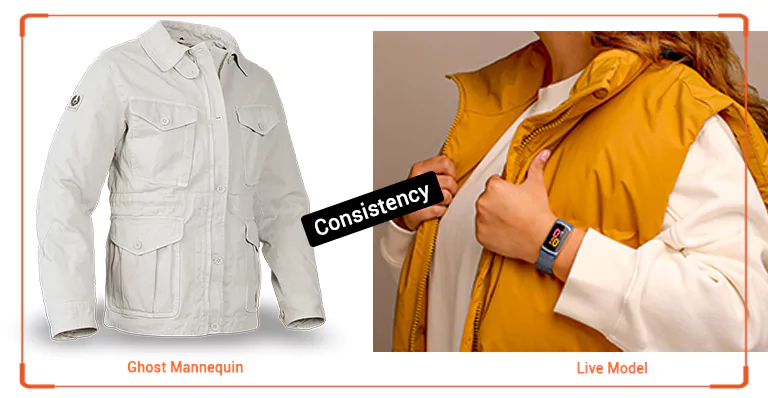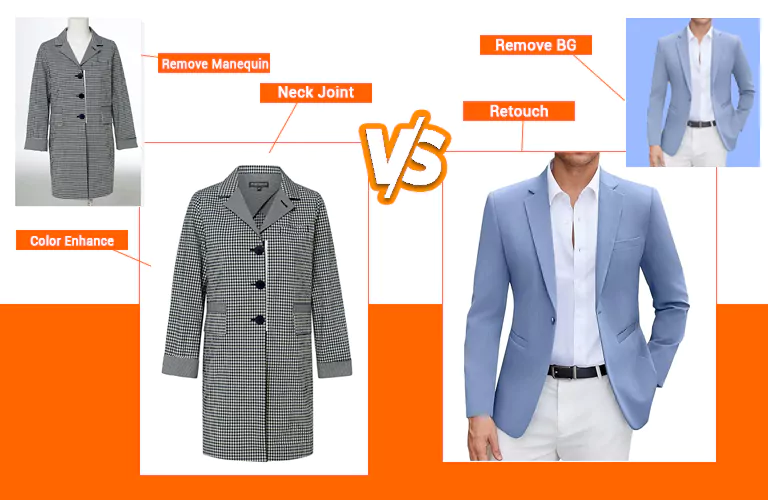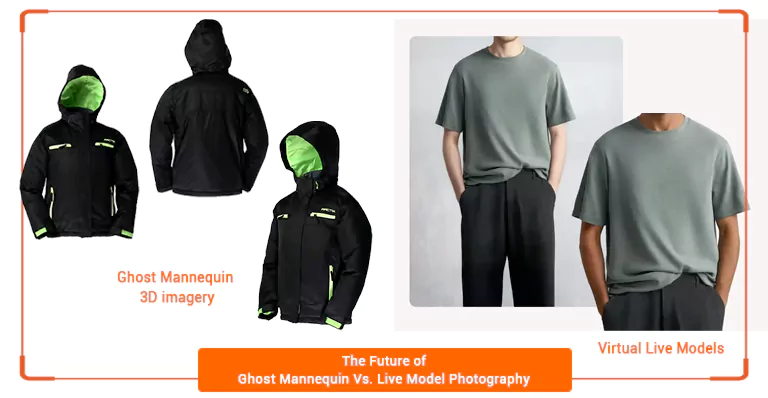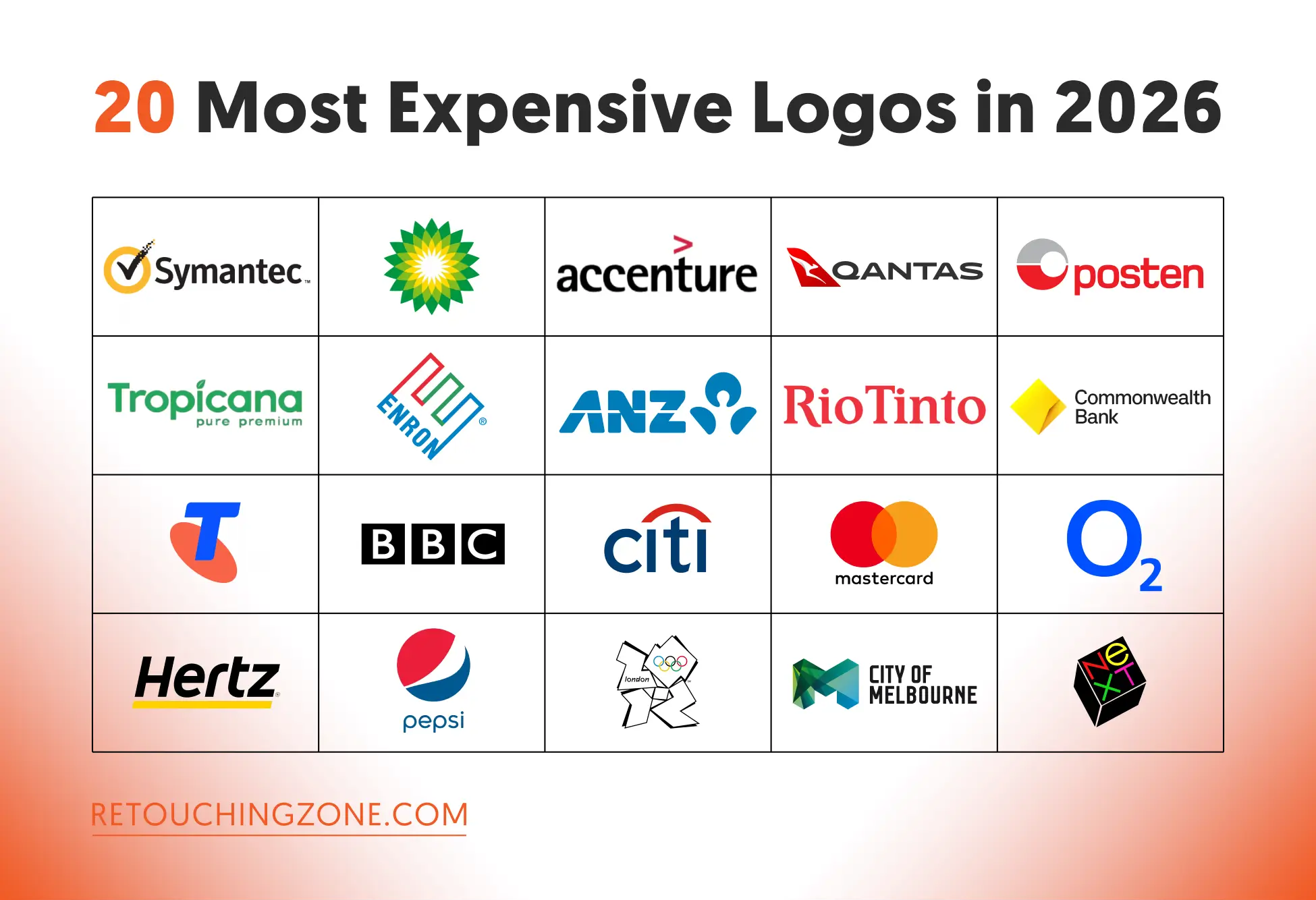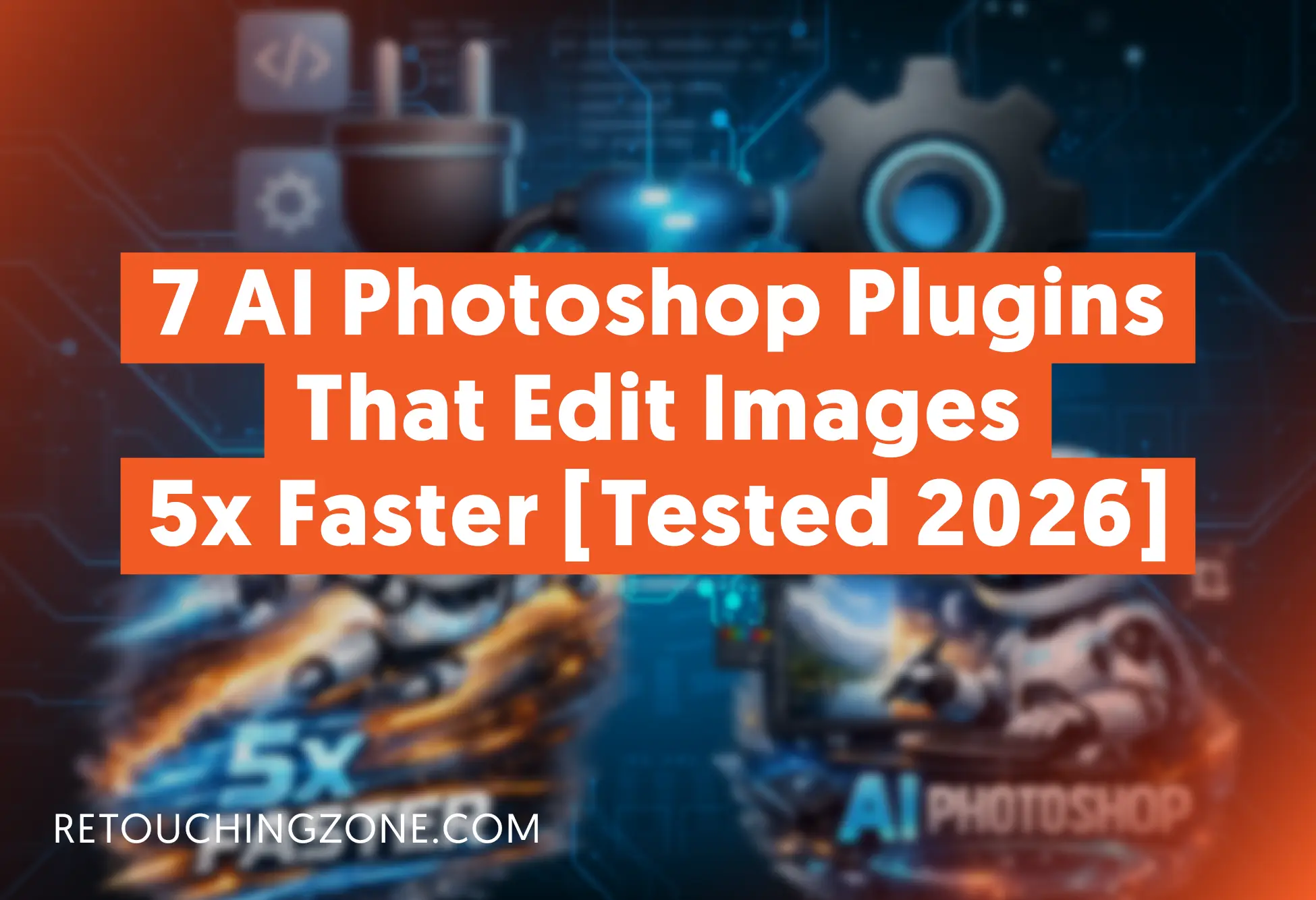Customers perceive a brand’s message, style, and values through its products. If you fail to present your product the right way, you have a high chance of failing. You must convince target customers to purchase the goods.
When it comes to ecommerce businesses, Ghost mannequin and live model photography are the two most popular photography styles.
Do you know the main differences between ghost mannequin vs. live model photography? You must know them to choose the right one based on your business requirements. This article gives you a complete overview of both photography styles.
What Is Ghost Mannequin Photography?
Ghost mannequin photography is a professional image shooting technique. You first take photos of your fashion or clothing item after putting it on a mannequin. Then, edit and retouch the captured photos to create an invisible mannequin effect. During the post-production process, you have to merge and blend multiple images seamlessly to create a natural, detailed, and floating look.
Advantages
- Consistent and uniform portrayal across all product photos
- A polished and professional presentation
- The core focus on the product details
- Highlights apparel shape and fit
- Smooth and less challenging workflow
- Ideal for e-commerce product listings
Disadvantages
- Lacks creativity and storytelling
- Less engaging than on-model shots
- Not suitable for all types of products
What Is Live Model Photography?
Live model or on-model photography uses real humans as models to commercialize various types of products through specific poses or artistic expressions. Customers perceive the product positively. They feel more invested and interested in it. These human-centered models help shoppers to visualize the design and functions of the product and influence their purchase intentions.
Advantages
- Representation of the brand’s character and values
- A better understanding of the product
- Human aspect in marketing
- Better social media engagement
- A more immersive and realistic shopping experience
Disadvantages
- Higher costs for models, photographers, equipment, and styling
- Time-consuming shooting and preparation
- Difficult to showcase multiple angles
Differences Between Ghost Mannequin Vs. Live Model Photography
| Specifications | Ghost Mannequin | Live Model |
| Product fit and shape | Accurate shape and flattering fit | Realistic representation of products |
| Visual approach | Focus-based style | Human elements |
| Time efficiency | Time-saving in the long run | Time-consuming for each project |
| Creative control | Limited creative expression | Various creative techniques |
| Consistency | A higher level of consistency | Various types of styles and poses |
| Post-production work | Comparatively easier | Time-consuming and challenging |
| Cost | Higher upfront cost but non-repetitive ongoing cost | Repetitive ongoing cost for each session or project |
| Environment friendly | Minimal resource usage | Less eco-friendly |
Product Fitting and Shape
Ghost mannequin photography creates a floating effect to showcase the accurate shape and flattering fit of the clothing. It reduces the product return rates.
In contrast, on-model shooting style is a realistic representation of the fashion item. Customers can perceive and visualize how it looks on real bodies. It creates a visually appealing and trustworthy impression and helps them perceive its value.
Focus-based Vs. Human Elements
Invisible mannequins create a focus-based style. All the attention is on the main product. It maintains consistency across all product listings. They use the same photography arrangement, lighting conditions, and editing approaches for all products.
On the contrary, human-based model photography has human elements in the product presentation. It creates an emotional connection as customers perceive the item as reliable and authentic.
Time Efficiency
You have to invest a considerable amount of time in setting up a ghost mannequin photo studio. But once you are done, you use the same studio month after month. It saves you valuable time in the long run.
Conversely, live model photography is a time-consuming task. You have to plan the scheduled sessions based on the models’ availability and your business hours. It may sometimes cause scheduling conflicts or unexpected issues. This will result in potential delays.
Creative Control
There are limited creative expressions in ghost mannequin photography. You use standard and consistent styles for all product listings.
However, you can utilize various creative techniques in on-model shooting. Different posing styles can convey emotions, action, and narrative. For instance, dynamic poses can evoke various feelings, communication, or meaning.
Consistency
Hollow man photography has a higher level of consistency across all product categories. They have a uniformed look. It ensures brand identity and professionalism.
However, designers use various types of styles and poses in live model shooting. Hence, it is hard to maintain consistency. However, they are effective in adding a unique perspe
ctive or evoke personal taste.
Post-production Work
Professional software like Adobe Photoshop and GIMP are used to add ghost mannequin effects to your clothing images. Experts use clipping paths and other editing tools to create a floating effect. It is not hard if you have the right tools and skills.
On the other hand, editing and retouching human-centered photographs is a bit challenging. Apart from the product, you have to work on the model and the surrounding elements. Everything needs to be professional and well-polished.
Cost
There is a high upfront cost for setting up a ghost mannequin studio. But once you set it up, you will benefit in the long run. It has minimal ongoing expenses.
Conversely, you have to pay a high amount for each session of live model photography. The cost includes model fees, makeup artists, and stylists. A different professional studio setup for a new project will cause additional expenses.
Environment Friendly
Ghost mannequin photography is more eco-friendly as you use the same studio setup without any human models. Hence, there will be minimal resource usage.
In contrast, on-model shooting involves travelling, energy consumption, and various product usage. It is less eco-friendly than the other one.
The Future of Ghost Mannequin Vs Live Model Photography
The future of ghost mannequin photography is 3D imagery. It creates 360-degree views of the product to showcase its intricate details. You can grab customers’ attention and interest faster.
On the other hand, real humans will be replaced fully by virtual live models. These computer-generated humans look like real-life models. They can even mimic realistic human characteristics, features, and even personalities. It will make the overall photography workflow seamless and cost-efficient.
When to Use Ghost Mannequin Vs. Live Model Photography?
If you want a consistent, professional, and focused view of the product, ghost mannequins are the best choice. It is mainly used for clothing and fashion products.
Live model photography is appropriate if you want to create an emotional connection with target customers. It is great for apparel, beauty, Home appliances and cosmetic products.
Conclusion
Both ghost mannequin and live model photography styles are widely used for clothing and fashion products. Before choosing a particular option, understand your target customers’ requirements. Also, consider what platform you will use to commercialize your products. You may utilize both techniques to target specific customer segments. That’s the end of the discussion on ghost mannequin vs. live model photography.
